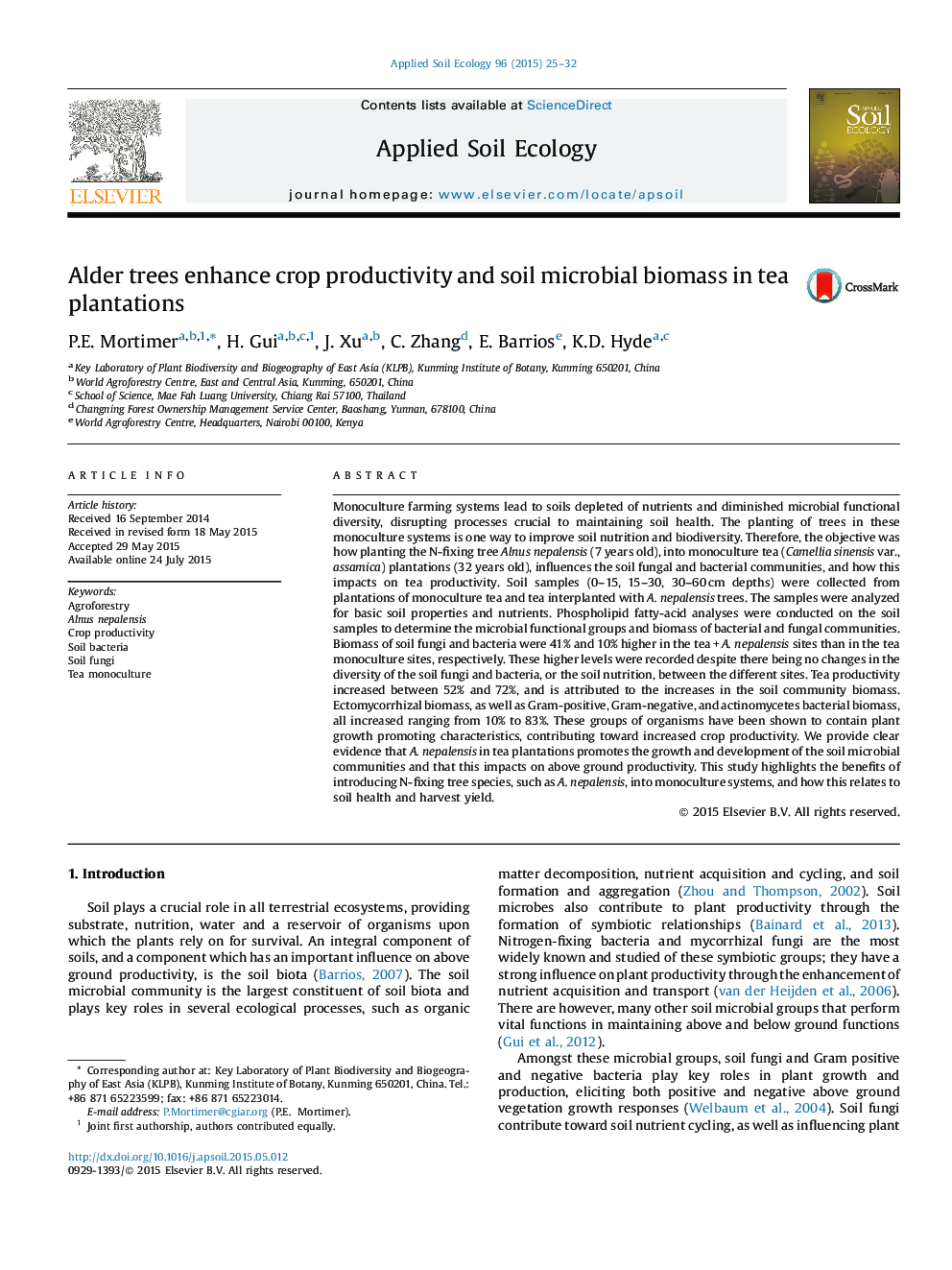| کد مقاله | کد نشریه | سال انتشار | مقاله انگلیسی | نسخه تمام متن |
|---|---|---|---|---|
| 4381892 | 1617787 | 2015 | 8 صفحه PDF | دانلود رایگان |
• Tea productivity increased between 50% and 72% when grown in conjunction with Alnus nepalensi.
• Inclusion of A. nepalensis in tea plantations resulted in greater soil microbial biomass.
• Inclusion of A. nepalensis in tea plantations did not lead to changes in soil microbial diversity
Monoculture farming systems lead to soils depleted of nutrients and diminished microbial functional diversity, disrupting processes crucial to maintaining soil health. The planting of trees in these monoculture systems is one way to improve soil nutrition and biodiversity. Therefore, the objective was how planting the N-fixing tree Alnus nepalensis (7 years old), into monoculture tea (Camellia sinensis var., assamica) plantations (32 years old), influences the soil fungal and bacterial communities, and how this impacts on tea productivity. Soil samples (0–15, 15–30, 30–60 cm depths) were collected from plantations of monoculture tea and tea interplanted with A. nepalensis trees. The samples were analyzed for basic soil properties and nutrients. Phospholipid fatty-acid analyses were conducted on the soil samples to determine the microbial functional groups and biomass of bacterial and fungal communities. Biomass of soil fungi and bacteria were 41% and 10% higher in the tea + A. nepalensis sites than in the tea monoculture sites, respectively. These higher levels were recorded despite there being no changes in the diversity of the soil fungi and bacteria, or the soil nutrition, between the different sites. Tea productivity increased between 52% and 72%, and is attributed to the increases in the soil community biomass. Ectomycorrhizal biomass, as well as Gram-positive, Gram-negative, and actinomycetes bacterial biomass, all increased ranging from 10% to 83%. These groups of organisms have been shown to contain plant growth promoting characteristics, contributing toward increased crop productivity. We provide clear evidence that A. nepalensis in tea plantations promotes the growth and development of the soil microbial communities and that this impacts on above ground productivity. This study highlights the benefits of introducing N-fixing tree species, such as A. nepalensis, into monoculture systems, and how this relates to soil health and harvest yield.
Journal: Applied Soil Ecology - Volume 96, November 2015, Pages 25–32
